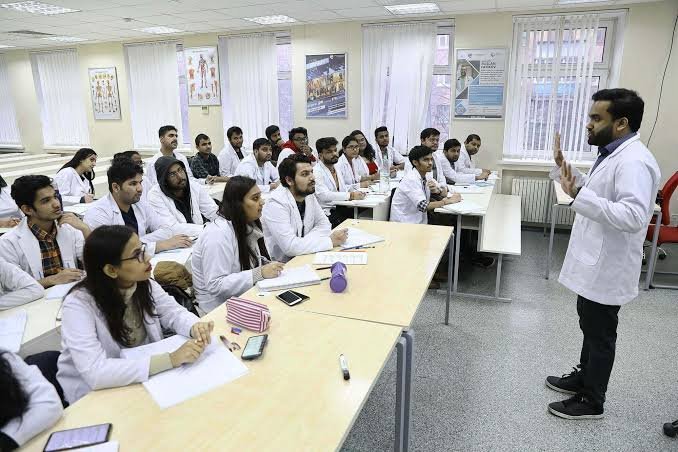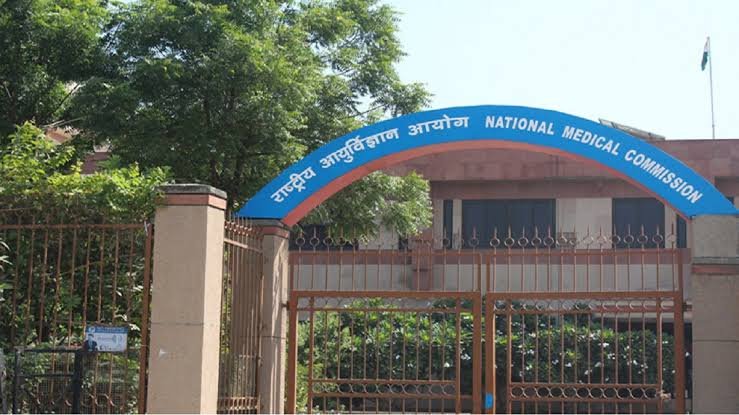This blog is your one-stop guide to the top medical licensing exams you’ll need to consider in 2024-25, depending on where you envision your medical practice:-
1. FMGE/NEXT (India):
- The Big One for India:The Foreign Medical Graduates Examination (FMGE), recently replaced by the National Exit Test (NEXT), is the mandatory licensing exam for Indian students returning home with an MBBS degree from an overseas university.
- Twice a Year:The National Board of Examinations (NBE) conducts this computer-based test twice annually.
- Gateway to Practice:Passing FMGE/NEXT is essential to obtain temporary or permanent registration with the National Medical Commission (NMC), allowing you to practice medicine in India.
Eligibility for FMGE/NEXT:
- Indian Citizen or OCI:You must be an Indian citizen or an Overseas Citizen of India (OCI).
- Recognized MBBS Degree:Your MBBS degree must be from a university outside India recognized by the NMC.
- Internship Requirement:You must have completed a one-year internship from a medical college or hospital listed in the NMC’s Directory of Foreign Medical Schools.
FMGE/NEXT Exam Pattern:
- One-Day Challenge:The FMGE/NEXT is a single-day exam with 500 multiple-choice questions covering various medical subjects.
- Subject Spread:Be prepared for questions on Anatomy, Physiology, Biochemistry, Pathology, Pharmacology, Microbiology, Forensic Medicine, Surgery, Medicine, Obstetrics & Gynecology, Pediatrics, Community Medicine, and Psychiatry.
- No Penalty for Wrong Answers:There’s no negative marking for incorrect answers, so it’s best to make an educated guess if you’re unsure.
2. Beyond Indian Borders: A World of Medical Opportunities
While the FMGE/NEXT exam paves the way for a fulfilling medical career in India, the world of medicine extends far beyond national borders. For MBBS graduates with a global perspective, numerous exciting opportunities await. Here’s a deeper dive into some of the top medical licensing exams for those seeking international medical licensure in 2024:
- USMLE (United States Medical Licensing Examination): The USMLE is the gold standard for practicing medicine in the United States. It’s a multi-step process that assesses a candidate’s medical knowledge, clinical skills, and ability to apply that knowledge in a safe and effective manner.
- Structure:The USMLE consists of three parts:
- USMLE Step 1: Focuses on basic biomedical sciences.
- USMLE Step 2 CK: Evaluates clinical knowledge and patient care skills.
- USMLE Step 2 CS: Assesses clinical skills through hands-on encounters with standardized patients.
- Eligibility:To be eligible for the USMLE, you’ll need an MBBS degree from a program accredited by a body recognized by the Educational Commission for Foreign Medical Graduates (ECFMG). Additionally, you’ll require passing scores on the USMLE exams and completion of residency training programs accredited by the Accreditation Council for Graduate Medical Education (ACGME).
- Structure:The USMLE consists of three parts:
- PLAB (Professional and Linguistic Assessments Board): The PLAB assessment is the gateway to practicing medicine in the United Kingdom. It ensures doctors from outside the EEA (European Economic Area) possess the necessary knowledge, skills, and language proficiency to safely practice medicine in the UK.
- Two-Part Assessment:The PLAB process is divided into two parts:
- PLAB 1: A computer-based test assessing your medical knowledge across various disciplines.
- PLAB 2: An OSCE (Objective Structured Clinical Examination) evaluating your clinical skills and communication abilities in simulated clinical scenarios.
- Language Requirement:Demonstrating proficiency in English is mandatory. You can achieve this through tests like the IELTS (International English Language Testing System) or the OET (Occupational English Test).
- Two-Part Assessment:The PLAB process is divided into two parts:
- MCCQE (Medical Council of Canada Qualifying Examination): Canada offers another promising avenue for international medical graduates. The MCCQE is a crucial step for those aiming to practice medicine in the Great White North.
- Two-Part Exam:The MCCQE is a two-part examination:
- MCCQE Part I: A computer-based test assessing your medical knowledge.
- MCCQE Part II: An OSCE evaluating your clinical skills and communication abilities in simulated clinical scenarios.
- Additional Requirements:Apart from passing the MCCQE, you’ll need to fulfill specific registration requirements set by the provincial medical regulatory authorities where you wish to practice.
- Two-Part Exam:The MCCQE is a two-part examination:
- AMC (Australian Medical Council) MCQ Exam: For MBBS graduates seeking a career Down Under, the AMC MCQ Exam is the first hurdle to overcome. This computer-based exam assesses your medical knowledge relevant to Australian medical practice.
- Pathway to Registration:Passing the AMC MCQ Exam allows you to apply for a visa to enter Australia for further assessments like clinical skills evaluations and interviews.
- State-Specific Requirements:Each state in Australia may have additional registration requirements, so it’s crucial to research the specific regulations of your chosen state.
Remember: Each licensing exam has specific eligibility criteria, application processes, and timelines. In-depth research into the chosen country’s medical licensing requirements is essential to ensure a smooth and successful transition into your international medical career.
By equipping yourself with the right knowledge and diligently preparing for the relevant medical licensing exams, you can unlock a world of possibilities and embark on a rewarding medical journey beyond national borders.

